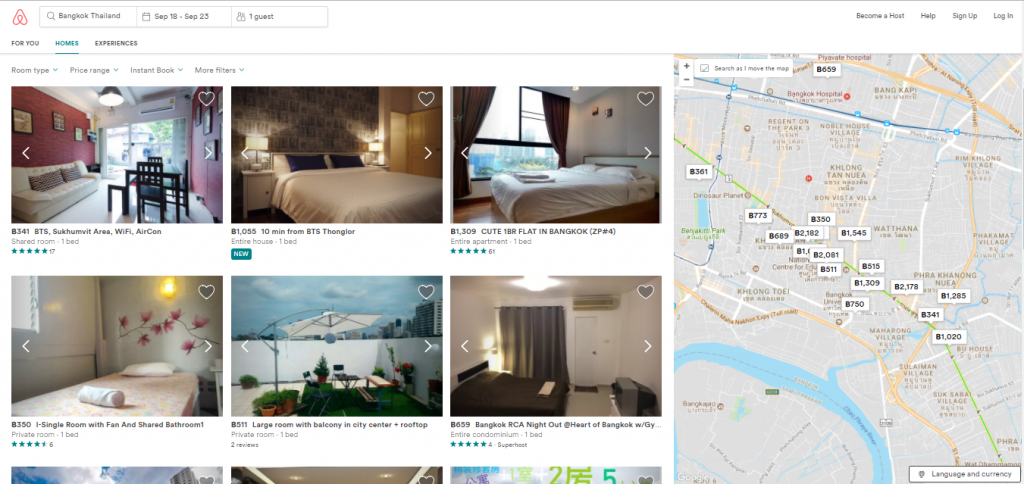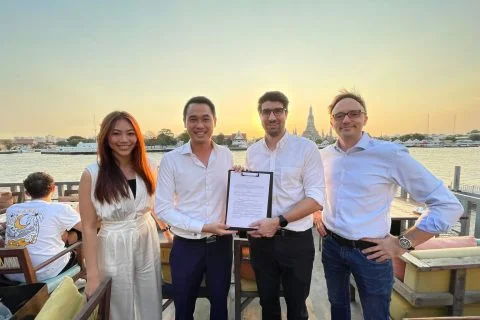With its global presence in a total 65,000+ Cities, 191+ Countries and a total of 3+ Million Vacation Rentals, Airbnb is a phenomenon taking Thailand by storm!
The simplicity of the turnkey service is proving incredibly attractive for condo landlords looking to generate extra-income. However Airbnb’s disruptive business model has placed it in direct opposition with several stakeholders notably the Thai Government and the Thai Hotel Association (THA). Both entities fear that Airbnb may potentially cannibalize the Thai Hospitality Industry and are seeking to have the online service completely banned.

A search on Airbnb for Bangkok, brings-up a variety of Vacation Rentals!
So is Airbnb legal in Thailand?
Vacation Rentals on Airbnb are currently operating in the grey area of the Thai Legal System.
They are neither legal nor completely illegal!
The current Thai Legal Framework is currently ill-suited to deal with Airbnb’s unique business model:
Hotel Act
Those opposed to Airbnb’s activities in Thailand, often cite infringements of the Hotel Act that state a “Hotel License” as a requirement to operating a business that provides temporary accommodation (Nightly rentals). However to complicate matters, the Hotel Act provides “Hotel License exemptions” for any business operation with no more than four rooms. This contradiction is the source of much debate!
Condominium Act
Interestingly, the Condominium Act states that no commercial activities are permitted in a condominium building (Except in the commercial areas specified). However the Condominium Act’s framework is undermined by the Thai Civil and Commercial Code that states that an owner of a property is entitled to its fruits provided it does not cause problems to other co-owners.
Fresh Property Final Comments
This confusing muddle of self-contradicting Legislation resembles a tangled bowl of spaghetti! This is the reason why Airbnb is still technically marketing vacation rentals in popular Thai destinations such as Bangkok, Phuket, Pattaya, Koh Samui and Chiang Mai.
While there is currently a gap between legislation and practical law enforcement, we recommend staying safely on the side of caution. While legislation remains unclear, Building Management and Co-owner Associations of certain condos are taking firm steps toward banning and shaming short-term rentals.
Quick Legal Disclaimer: This article is simply a brief evaluation Airbnb’s current status in Thailand and should not be treated as an opinion piece by the editors of Fresh or as legal advice.





Rafael Pena says:
Could you update this article for 2019 ? I am looking to see if foreigners can rent out airbnb condos
Fresh Editorial says:
Hey Rafael, sure we are actually working on an updated version of this article!
We will keep you posted.
Thanks for reading our Blog.